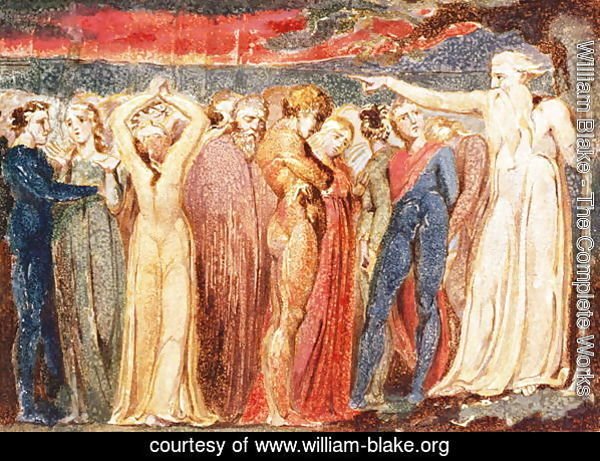John Wesley was an older contemporary of William Blake. Both lived in London although Wesley travelled widely in Britain. Wesley was a public figure for whom crowds gathered in the open air to hear his sermons.
A book of 15 hymns called Hymns for the National Fast was published by John's brother Charles Wesley in 1782 in response to King George's call for a day of fasting following the loss of the Battle of Yorktown. Hymns from this book were combined later with a 1781 hymnal. The expanded version of the hymnal containing hymns from both brothers, was published by the Wesley brothers with the title Hymns for the Nation. A copy of this book made its way into the hands of William Blake who retained it until his death.
In the Preface of 1780, Wesley defended his own poetry in much the same way that William Blake felt obliged to defend his poetry.
Preface of 1780
"6. May I be permitted to add a few words with regard to the poetry? Then I will speak to those who are judges thereof, with all freedom and unreserve. To these I may say, without offence, 1. In these hymns there is no doggerel; no botches; nothing put in to patch up the rhyme; no feeble expletives. 2. Here is nothing turgid or bombast, on the one hand, or low and creeping, on the other. 3. Here are no cant expressions; no words without meaning. Those who impute this to us know not what they say. We talk common sense, both in prose and verse, and use no word but in a fixed and determinate sense. 4. Here are, allow me to say, both the purity, the strength, and the elegance of the English language; and, at the same time, the utmost simplicity and plainness, suited to every capacity. Lastly, I desire men of taste to judge, (these are the only competent judges) whether there be not in some of the following hymns the true spirit of poetry, such as cannot be acquired by art and labour, but must be the gift of nature. By labour a man may become a tolerable imitator of Spencer, Shakespeare, or Milton; and may heap together pretty compound epithets, as "pale-eyed," "meek-eyed," and the like; but unless he be born a poet, he will never attain the genuine spirit of poetry."
Wesley himself and his fellow evangelist Whitefield appear in Blake's Milton as two servants who suffer the fate of prophets as they witness to Christ.
Milton, Plate 22 [24], (E 118)
But then I rais'd up Whitefield, Palamabron raisd up Westley,
And these are the cries of the Churches before the two Witnesses[']
Faith in God the dear Saviour who took on the likeness of men:
Becoming obedient to death, even the death of the Cross
The Witnesses lie dead in the Street of the Great City
No Faith is in all the Earth: the Book of God is trodden under Foot:
He sent his two Servants Whitefield & Westley; were they Prophets
Or were they Idiots or Madmen? shew us Miracles!
Plate 23 [25]
Can you have greater Miracles than these? Men who devote
Their lifes whole comfort to intire scorn & injury & death
Awake thou sleeper on the Rock of Eternity Albion awake
The trumpet of Judgment hath twice sounded: all Nations are awake
But thou art still heavy and dull: Awake Albion awake!"
You can learn more about the books Blake read in Blake's Margins: An Interpretive Study of the Annotations by Hazard Adams. Exerts from the book are available at this website.

No comments:
Post a Comment